
of Kazakh philosophy. Since our country gained its independence, a lot has changed in terms of economic, political and social conditions of the system; this also caused a number of important changes in the cultural sphere, in particular, led to a revival of interest in the values of the traditional culture of the Kazakh people. This was followed by an increased interest in the history of the formation and development of Kazakh philosophy. It should be considered that the definition of Kazakh philosophy is a modern category, although such concepts as 'dana', 'danyshpan', 'danalyq' and 'hakim'. It is claimed that the words 'danalyq' and 'hakim' are the closest to the meaning of philosophy.
The people's memory has preserved in its bowels many wise thoughts, said in due time by hakims or, in modern terms, by philosophers. 'The word bequeathed by the ancestors' - this proverb has been popular among the people to this day. In this regard, the history of the wise thoughts of the Kazakh people can be divided into two periods. The first period is their genesis, that is, the common Turkic philosophical thought founded by outstanding thinkers such as Korkyt, Yusuf Balasaguni, Khoja Ahmet Yassaui, Al Farabi, Mahmut Kashgari, and many others. The creative legacy of the above thinkers of the Middle Ages became the basis, the starting point, the prerequisite for the formation of the world outlook of the Kazakhs, with which the second stage begins.
The socio-political condition for the formation of the worldview of the new ethnos was the formation in 1456 in the tract of Kozy-Basy that is in the floodplain of the Shu river, the Kazakh Khanate. At that time the first Kazakh thinkers Asan Kaigy and Haydar Dulati appeared. Actually, Kazakh philosophy ("danalyq oilar") begins its history with these names. Asan Kaigy is the first Kazakh zhyrau, an outstanding personality, public figure, thinker, creator of the new doctrine of "zheruyq" (a promised land), which became the basis of the state concept of building an independent Kazakh khanate.
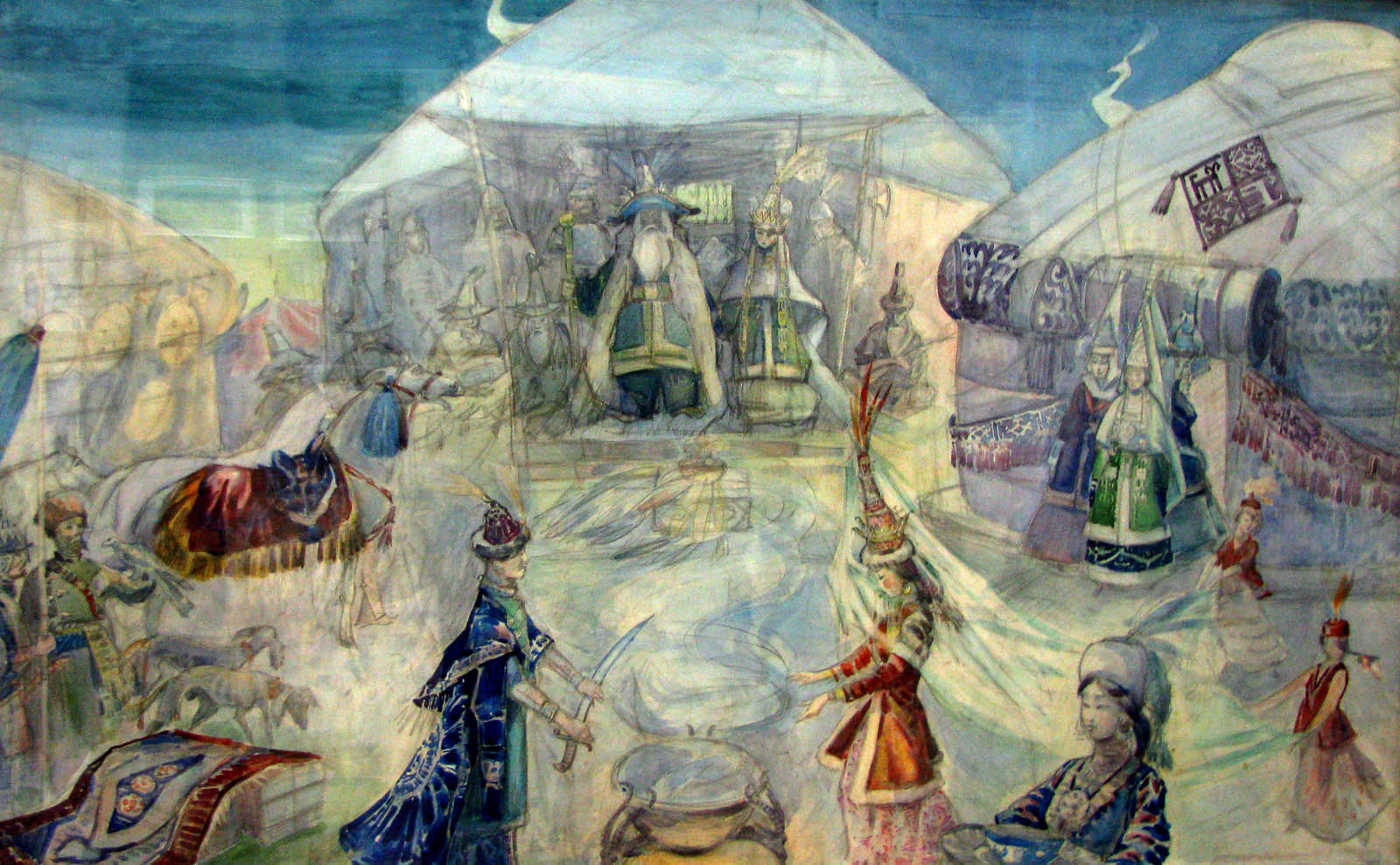
Shokan Ualikhanov, giving exceptional importance to the idea of state development, called Asan Kaygy the first steppe philosopher who believed that the earth is this main, fundamental concept in the history of the formation of national self-consciousness, the worldview of the people. The word 'zheruyq' consists of two parts - 'zher' (earth), 'uyuq' - (grace). "The former in a broad sense for Asan Kaigy meant the concept of civic-mindedness, unity, unity, ethnic consolidation of the nation, united under the flag of statehood. Thus, Asan Kaygy is the first who laid the foundations of the state development of the Kazakh Khanate. In fact, he is not only the first philosopher, but also the first geographer and topographer, the compiler of recommendations for the organization of reasonable land use. Definition of territories, rules and principles of state administration, peculiarities of the formation of a single nation. Another confirmation that he is the first to lay the cornerstone of Kazakh philosophy is the addition to his name of the epithet "kaigy" (sadness, grief).
The epithet "kaigy" is used in relation to people of high moral order, who have seen many, subtle, and wise people. Asan says sadly not only about his time, about what is happening around everyday life. His sad thoughts are pervaded by sadness about the future. He doubts whether the succeeding generations will be able to retain independence, strengthen statehood, will they be able to remain holders of the "zheruyq" - the land of the promised, inherited from their ancestors?
Asan Kaigy expressively recreated the image of the future, wishing to prepare descendants for difficulties, to form in them a sense of responsibility for the destiny of the state. At all times the sages were the spiritual guides of succeeding generations. As an argument, we give the following example. Asan Kaigy introduces into the line the word "Karyndas" (sister), giving the word a broader, civilian meaning. Asan Kaigy warns: if you live among your compatriots, in your native land, in a single state, without harmony and harmony, now and then attacking each other and blaming everyone around you, it will not lead to anything good. This idea of wise Asan Kaigy could become a cold sobering shower for other zealous supporters of the clan division in our time. Asan Kaigy - the founder of the domestic philosophy, laid the historical forms of the national idea. In modern geographical comprehension.
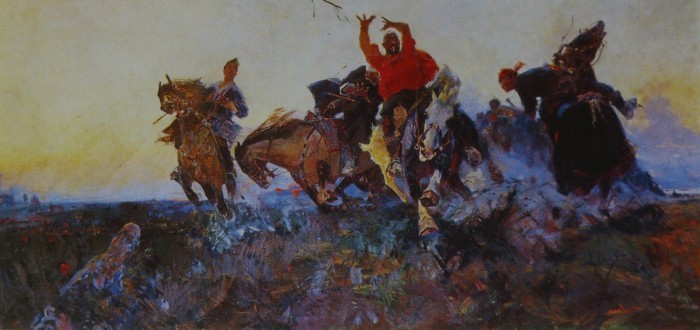
Zheruyq is the present Kazakh soil. Asan Kaigy's worldview was based on reflections and definitions of existential content, and he expresses his thoughts in the genre of qaigy. His world outlook is based on two philosophical categories: the category of life (omir) and the category of existence (omir suru). In this sense, Asan Kaigy is the successor of the world outlook of the prominent Kazakh thinker Korkyt. The concept of fatalism, expressed in words: "Wherever you go, Korkyt's grave is looking for you everywhere," echoes the conceptual idea of Asan Kaigy's future irreversible changes.
The tradition of zhyrau, started by Asan Kaigy, continued until the dissolution of the Kazakh Khanate. The successors of his traditions were Kaztugan zhyrau, Dospambet zhyrau, Shalkiyz zhyrau, Zhiembet zhyrau, Margaska zhyrau, Aktamberdy zhyrau, Umbetey zhyrau, and Bukhar zhyrau. If the last khan of the Kazakh khanate was Abylai, then the last zhyrau is Bukhar zhyrau.
No doubt, after Bukhar zhyrau there were also great singers, storytellers, zhyrau, and Kazakh khans appeared after Abylai khan, but such a khan as Abylai khan and zhyrau, like Bukhar zhyrau, who represented the interests of all Kazakhs, did not exist. Along with the disappearance of the Khan's Institute, the days of zhyrau passed, the first feature of which was that they are organically connected with the Khanate Institute. The second peculiarity of the zhyrau phenomenon is the presence of two main themes in their work: power and heroism. Zhyrau does not have legal power, but he is an intermediary between the ruler and the common people. If the khan wanted to know the mood of the people, he called the zhyrau and listened attentively to him. By the way, although every analogy is vicious, the functional features of zhyrau coincide with the duties of the present deputies. What distinguishes them is that zhyrau are not elected. Zhyrau pierce their way to the khan's tent exclusively with their personal qualities, breadth of knowledge, sharp, accurate words, oratorical art, active civic stand.

Another founder of Kazakh philosophical thought is a prominent public figure, poet, writer, artist - Haydar Dulati, who in the book "Tarikh-i-Rashidi" clearly and convincingly shows the spiritual unity of the Turks and traces their connection with world civilization. It contains not only the full and detailed history of Mogulistan and the Kazakh Khanate. The undoubted merit of the author is that he for the first time in domestic science highlights the philosophical problems of history in "Tarih-i-Rashidi"; such as time, fate, personality in history, the history of religion, the evaluation of historical events, the meaning of life, the principles of government, etc.
Haidar Dulati, drawing on the well-known writings of thinkers of his era, produced a brilliant analysis of one of the main themes of philosophical anthropology - the issue of sin. Sin he divides into two categories. The first category of sin Dulati divides into seven types: unbelief, murder, slander, ill-treatment of orphans, usury, dullness, disrespectful attitude towards parents. Secondly, sin is classified according to such criterias as four kinds of sin are related to the heart, four are related to the tongue, two are to the hands, the next two are to the genitals, one sin is made by the feet, and the subsequent is related to the flesh.
In addition, Dulati, having singled out ten principles of state administration, describes in detail the ten duties of the ruler and recommends that they be brought to the consciousness of every citizen. "Know that the rights of a law-abiding Muslim should be recognized by the one who stands at the helm of power," the outstanding thinker concluded. The book contains deep studies of the life and creativity of the Sufis and their worldview; describes the life of artists, such as Behzat. It is natural in this connection to believe that "Tarih-i-Rashidi" represents a unique written monument of Kazakh philosophical culture.
In the process of understanding the mentality of the Kazakh people, the use of such a thing as the space of historical time (historical and temporal space) is of great importance. In this regard, the history of our people consists of several historical and temporal spaces. The khan period occupies the space from the above-mentioned 1456 until the publication of the Charter of the Siberian Kirghiz in 1822, this is approximately 360 years. More than three centuries, the Kazakh society existed as a sociocultural community under the khan's administration with a system of value orientations inherent in this period, reflected in numerous works - the treasures of Kazakh culture.
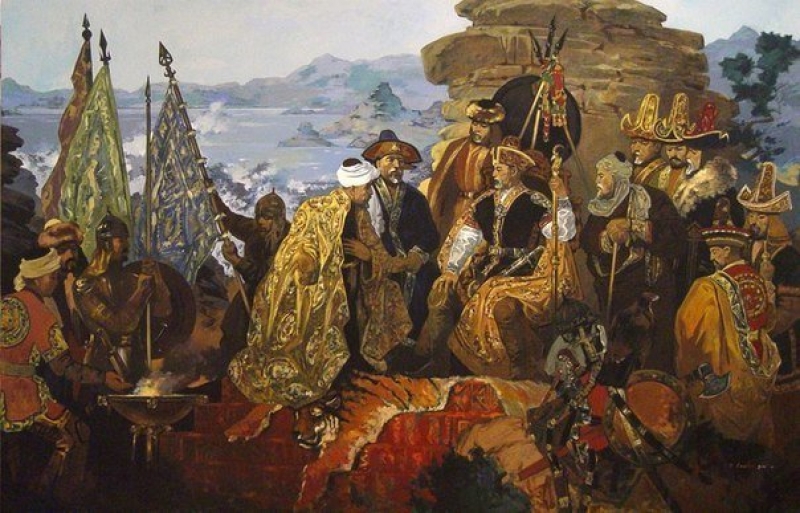
There was a single theme that united the hearts and dastas: the philosophy of achievement, which found its continuation in the work of Makhambet Otemisuly. For Makhambet, the loss of the civil rights of the Kazakhs is the loss of state integrity. The restoration of these rights is the leitmotif of the uprising of Makhambet Otemisuly and Isaty Taimanov. Yerlik as a value category appears in the works of Makhambet as the maturity of civic consciousness. Spiritual values related to the philosophy of love were formed under the influence of the poetry of the East, Sufi literature and originally national concepts and definitions. Reflection of this theme manifested itself in such poems as "Kozy Korpesh-Bayan Sulu", "Kyz Zhibek", "Enlik-Kebek", "Kalkaman-Mamyr" and others.
After the system of khan's power disintegrated, the sociocultural community of Kazakhs turns into another historical and temporary space, which lasted from 1822 to 1917, when the territory of the former Kazakh Khanate became part of the Russian Empire. In this space, the old value system gradually collapsed, and other landmarks came to replace it. The philosophy of Podvig was replaced by the psychology of sycophancy and servility, the psychology of servility, the philosophy of citizenship replaced generic and jusa prejudices. The ideologists of the tsarist regime exacerbated the situation, guided by the principle of "Divide and conquer". In the public consciousness this period was expressed by the concept of "Zar zaman" (the age of sorrow). It was a grief over the spiritual values that had collapsed into oblivion.
The October Revolution defined for many peoples of tsarist Russia a new historical and temporary space - the era of the construction of a socialist state, based on the Marxist doctrine of communism. Utopian values began to be formed in this historical-temporal space. One of their manifestations is enlightenment. As political and ideological category, it served as an instrument for the propagation of socialist ideas. In a positive sense, enlightenment can be perceived as a public education, as the holding of cultural events. The personality of Ibrai Altynsarin most fully fits this definition. 'Following the true path, let's, children, learn' used to say Altynsarin.
Altynsarin was involved not only in the opening of schools, but also took care of the educational-material, methodical aspect of the educational process. So, in 1879 the first teaching aids were published: "Kazakh reader", "Initial aid for the study of the Russian language for Kazakh children". Ibrai wrote poetry and stories for children in an easy, accessible form, and used them as a textbook. If you study, children, light will shine before you, And everything that you wish will be fulfilled. When parents grow old, the letter will come to their aid, If you lose your livestock, education will help you.
In his stories he talks about the benefits of knowledge, which, along with life experience, give a wide range of views, confidence and goodwill. In the works of Altynsarin there are no complex philosophical conclusions, metaphors, difficult to assimilate. He needed to be understood by a common man. He believed that at the beginning of the training the student should not have a shadow of doubt in the usefulness of the teaching. This was well understood by the teacher Ibrai. He was a children's writer, a wise connoisseur of the child's soul, peculiarities of the child's worldview. If we recognize the problem as the category of the philosophy of childhood, then Ibrah rightly should be attributed to the category of those who first investigated this problem in the history of Kazakh philosophy.
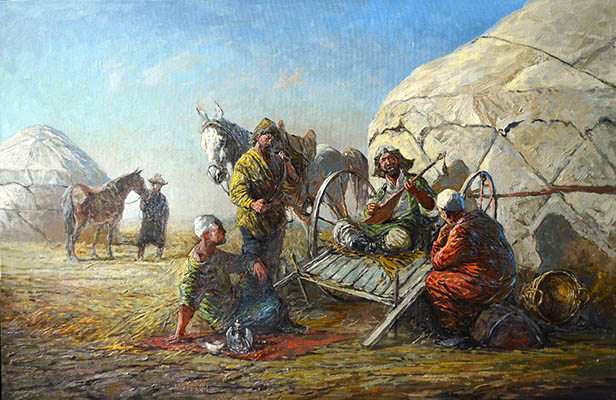
In the textbooks on the history of Kazakh philosophy, some authors reckon Ibrai and Shokan Ualikhanov to a host of Kazakh enlighteners. It is likely that this statement is based on certain grounds, and the authors are ready to provide irrefutable evidence as an argument. Let it be so. Shokan Ualikhanov was born in 1835, he died in 1865. He lived in the white world for only thirty years. This fact should become the main one for those who want to learn the truth about it. In 1847 he entered the Omsk Cadet Corps. At the end of the corps in 1853 he serves as adjutant to Governor-General of the West Siberian Governor General, Mr. Gasfort. In addition, I think it necessary to notify that Shokan was a native of the khanate family, the son of the grandson of Abylai - Shyngys Ualikhanov. Shokan could not engage in educational activities of the people, because he was in the service of the tsar, as well as his father, and was engaged in the performance of office assignments and obligations.
Shokan's talent was revealed not in the educational field, but in the scientific field. In the history of Kazakh philosophy, Shokan should be recognized as a scientist. In his manuscript on the Kyrgyz epic Manas, Geographical Sketch of the Trans-Ili Territory, Legends of the Great Kirghiz-Kaisak horde, Diary of a Trip to Ystykkol and other historical, ethnographic, sociological, psychological works and works make up the priceless heritage.
The uniqueness of Shokan's legacy lies in the fact that in his works a cultural, political, public portrait of the era of the second half of the 19th century was created. Through the eyes of an eyewitness of the past, we can comprehend the events of those years. However, analyzing the creative heritage of Shokan from the height of modernity, we must take into account some factors. First, Shokan, creating his works, had no opportunity to speak directly and frankly about what was happening. In covering many problems, he adhered to the views of Russian orientalists and tsarist officials. He had no choice. I will give an argument. Shokan knew the history of the Kazakh Khanate perfectly, but he could not create an objective picture of the past. He also had no opportunity to tell the truth about the policies of his great-grandfather Abylai.
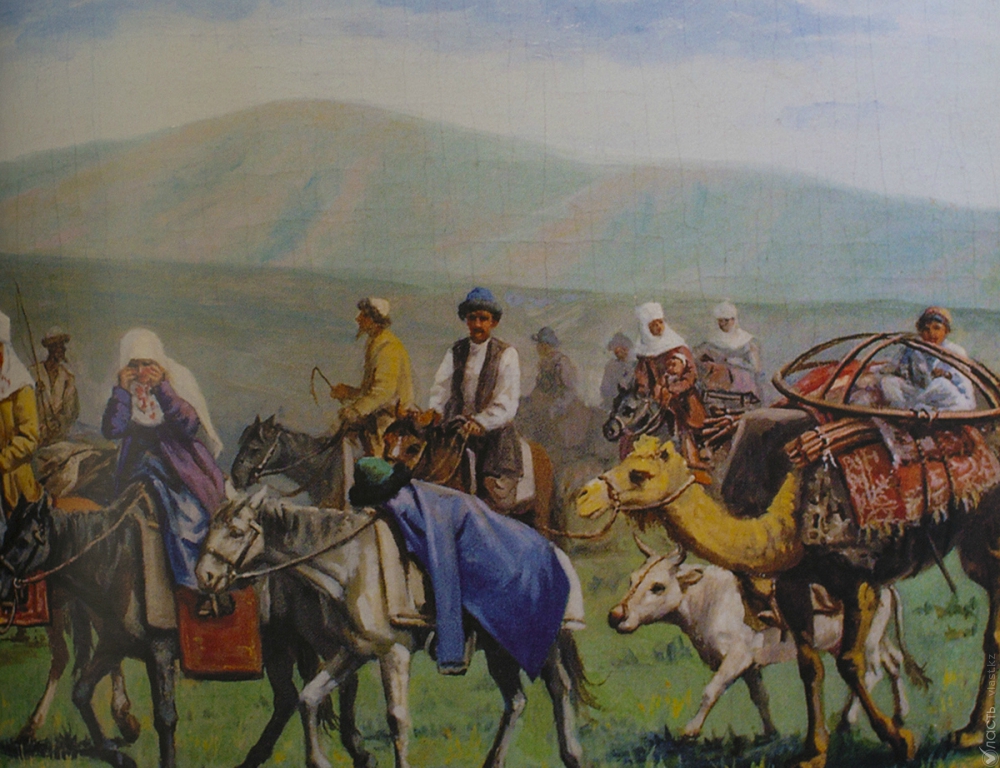
Secondly, the world outlook of the young Shokan was formed under the influence of the pro-Russian father of Shyngys, the colonel of the tsarist army. At that time, it was the highest rank for foreigners, and was given to him solely for outstanding service to the king. In addition, Shokan had considerable influence and studies in the Cadet Corps, created for the purpose of political and ideological colonization of the steppe by the Russian empire. Thirdly, Shokan Ualikhanov is a serviceman of the tsarist administration, an officer who swore allegiance to the flag of the Russian Empire. He is a representative of Genghisides, a descendant of khans from the Tore clan. Finally, he was not destined to live up to forty, a man becomes mature, he did not manage to reach the mark of fifty, when both the character and the intellect come to an agreement. He was only thirty years old. As a meteor, he flashed in the horizon of the history of the people, leaving a bright trace in his soul.
Proceedings of Shokan Ualikhanov require a scrupulous, attentive, thoughtful reading, without prejudice and glance, hanging labels and the desire to whitewash everything or all to tarnish. For the history of philosophy, three works by Shokan are extremely important: "On Islam in the Steppe", "Traces of Shamanism among the Kirghiz", "Note on Judicial Reform". The legacy of Khoja Ahmet Yassaui has firmly established itself in the national culture of spiritual thought, becoming one of the foundations of its formation. As a proof of the validity of our assertion, let us cite an example: such widely used words in the modern language as intellect, intellect, retribution, moderation, gratitude, position, deed, mystery, image, splendor and many others are descendant Sufis. In the center of the whole universe, everything on earth is a man. How can he know himself, his attitude to the world? In the process of this cognition, the human essence has two features of manifestation. The first - its spiritual nature, or angelopodobie, purity, the second - the carnal nature, controlled by the temptations of the devil.
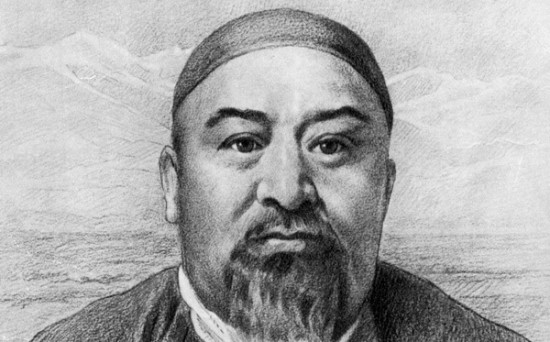
The tradition of hikmet or wise words did not stop until the time of Abai. Philosopher Abai expressed deep ideological ideas in terms of cognition of the human essence. "By the love of Allah, a man is born," says Abai, therefore, love is a category associated with the essence of the God and the component of his power. When it comes to the relationship between Allah and a man, Abai defines it through the category of 'love'. Thus, it turns out that a man's duty is to love Almighty who created him with love. In addition, a person should love all people as brothers, and love ustice as a good, true path. These three characteristics of the category of love are, as the philosopher claims, the essence of holiness. For the first time in the history of Kazakh philosophy Abai presented a conceptual vision of the model, the essence of a mature personality. According to Abai, the mature personality of man makes three qualities: mind, heart, will. In the creative heritage of Abai - his deep thoughts about the soul and flesh.
The image of the life of the people, their self-awareness and self-knowledge, thoughts about the future, truthful elements of true spirituality, suffering for their homeland and loved ones, aspiration for unity with blood-bearing tribes have found wide coverage in the people's world view, which is the most important aspect of the formation and development of national philosophy. Folk epics, epics and legends, lyrical poems, proverbs and sayings, the relationship between man and nature, political and economic judgments indicate a sufficiently developed level of the worldview of the corresponding theory of knowledge of his time. The history of Kazakh philosophy is the most meaningful part of the history of the people. It is in philosophical knowledge that the rich elements of national ideas and ways of their cognition are reflected. This is a distinctive feature of Kazakh philosophy, as historical wealth and national thought have merged together, mutually enriching, formed the basis of national philosophy.
Analyzing in general the history of world philosophy and the correlation of Kazakh philosophy with it, researchers and scholars come to interesting conclusions. In particular, he believes that there is no world philosophy, but there are separate ethnic philosophical systems that make up it. Philosophy is formed on the basis of ethnic life and mentality of the ethnos, is reflected in its language. Therefore, they, agreeing with the opinion of Heidegger (language is the house of the truth of being), believe that without knowing the language of the ethnos, it is impossible to comprehend philosophy.
Firstly, natural forces, customs, social patterns, social processes and philosophical thought have merged into one stream of seeking truth, which manifested itself in folk folklore, the works of thinkers. Secondly, the basis of philosophy was a myth, but the myth was transformed through the epic and was used in a systematized form. In every epic the kind of mythology changed, and with it art, and under the influence of initial scientific ideas the philosophical process developed as one of the elements of the whole social consciousness. Thirdly, economic and military problems were solved through overcoming political crises with the help of philosophical reflections. Then, philosophical thought is not closed in strictly national frameworks, it goes far beyond its limits. Finally, popular wisdom, expressed in the attitude and political actions of the people, is the basis of political views that directly reflect the social life of people.
The system of rich Kazakh culture began with the ancient elements of philosophical thought and under modern conditions formed the basis of a full-blooded classical philosophy. The history of the formation and development of national philosophy is rich in traditions and interesting philosophical researches, which have not lost their significance even to our days. At the same time, Kazakh philosophy is not just a philosophical system that shows the features of a certain ethnos. It is a world view, based and expressed in the Kazakh language.

